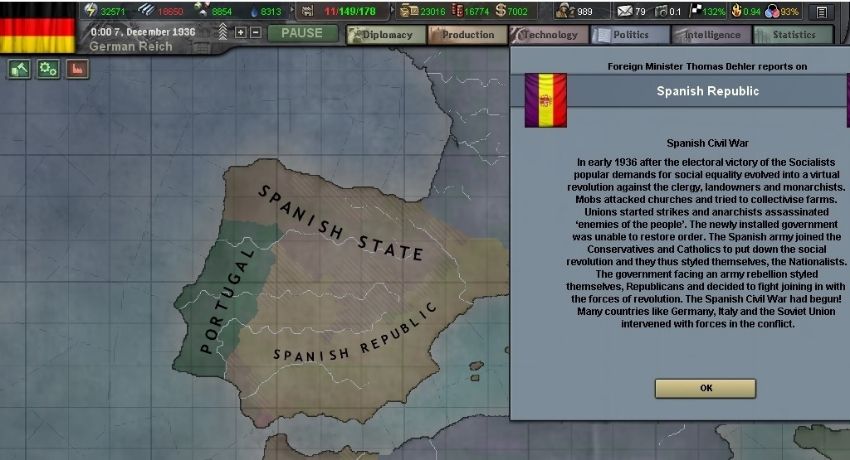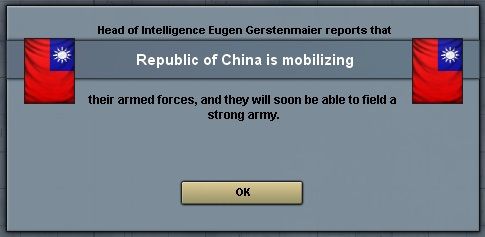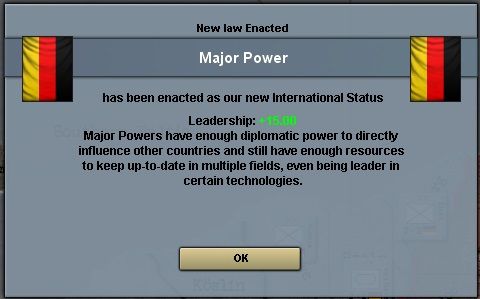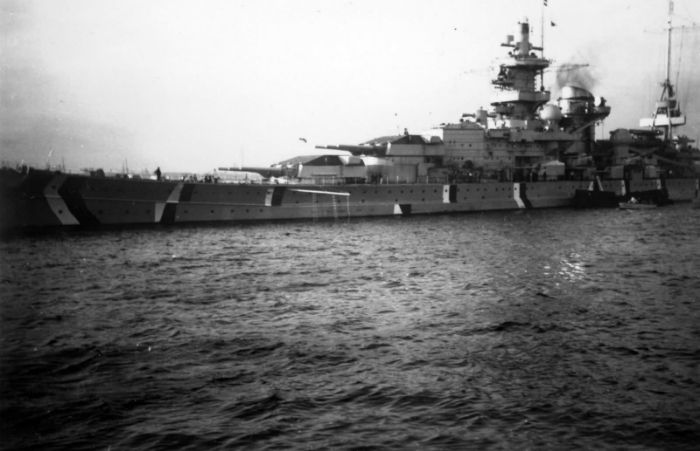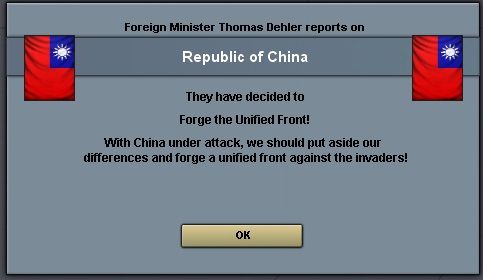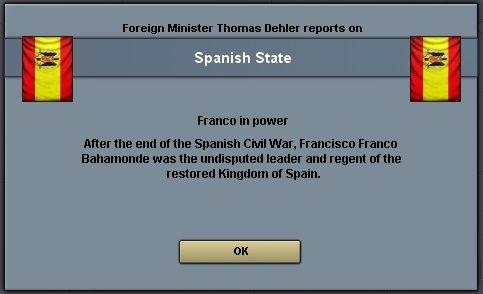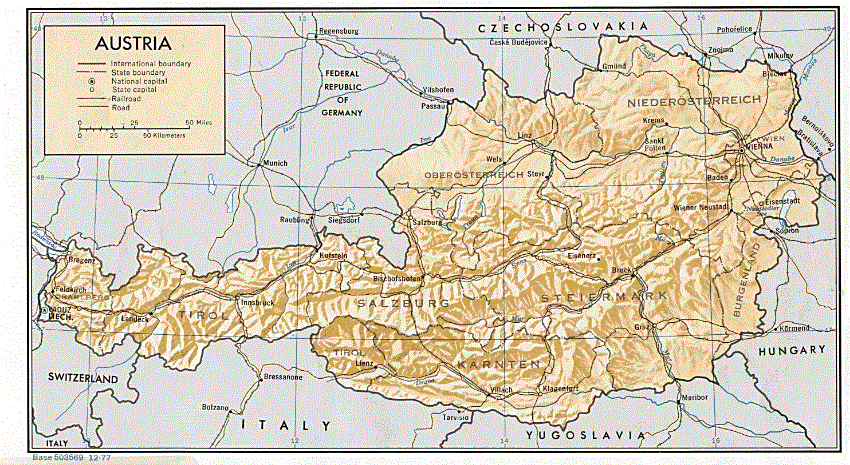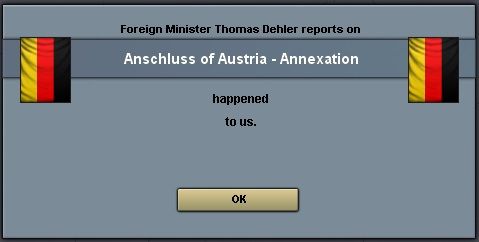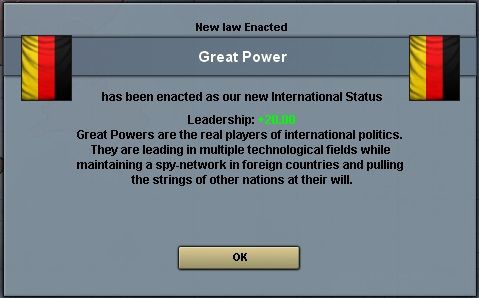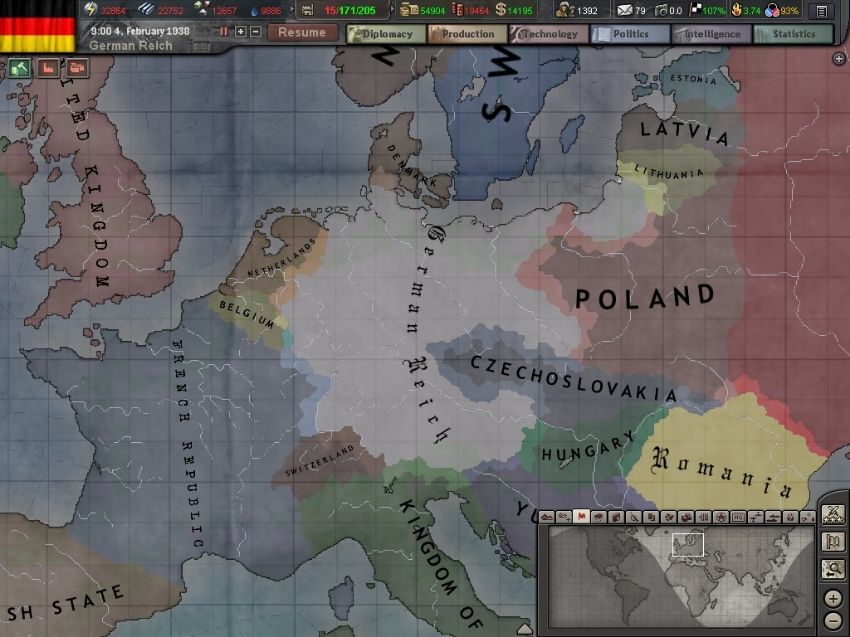Ended up busy. Updates here now though!
While the young Republic in Germany had stabilized to a certain extent after the elections of 1934, the other newly proclaimed Republic in Europe was not so fortunate. Even younger than Weimar, having been formed in 1931, the Second Spanish Republic was a troubled nation from its inception with the abdication of Alfonso XIII. While at first it was arguably stronger than the German Reich, in that those who overthrew Rivera were staunch Republicans, this strength did not last long.
The Republic had unpopular policies, especially in regards to the Catholic Church, something that upset a large portion of the Spanish populace. These unpopular policies came to a head, when the Popular Front- a coalition of left-leaning voters -won the 1936 election. Members of the Spanish military had already been planning a coup for some time, and the Popular Front's...unpopularity...amongst the conservatives of every color (Carlists, Monarchists, Conservatives, and so forth) gave them an opening. Under Jose Sanjuro and Fransisco Franco, the Spanish Army rebelled, proclaiming a 'Spanish State' in Morocco and northern Spain.
What few units remained loyal to the Republic were bolstered by Socialists and Communists, including the soon to be infamous International Brigades. The Spanish Civil War had begun, and it quickly became a proxy war. Stalin and the USSR sent supplies and men to the Republicans, while Mussolini's Italy supported the Nationalists. France and Britain stayed neutral, refusing to aid either side. The German Reich was divided on the issue, with the DNVP firmly in the Nationalist Camp, due to their perceived Monarchist leanings. The SPD-lead Coalition was split, and eventually decided on non-intervention. Supporting either side would split the already fragile Weimar Republic even further, and that could not happen.
Spain was not the only nation at risk of war. The Republic of China, still recovering from its civil war with the Communists, was a state that controlled its territory in name-only. Large portions of 'Republican' territory were technically under Warlord control...Xibei San Ma, Xinjiang, Guangxi, Shanxi, Yunnan...all only 'technically' under control of Nanjing. This divided nation, long supported by Germany, was being eyed hungrily by the ever-growing Japanese Empire.
Already, Manchuria was under control of the Qing Emperor Pu-Yi, as a Japanese puppet state. It was an open-secret that the Japanese were hardly satisfied with the resources they were stripping from the Manchus, and that they wanted more. The Republic of China was a weak state, and the expansionist Empire at their doorstep was quite eager to take advantage of this. It was because of this fact, that both Weimar and the Soviet Union were supporting the Chinese.
In the German case, they had Alexander von Falkenhausen, a decorated general, helping modernize the Republican Army. Chiang Kai-Shek, leader of the Kuomintang, was quite happy with this assistance. The New Model Chinese Army, being developed along the same lines as the
Reichsheer, might just be a match for Japan if given enough time to develop.
Unfortunately, storm clouds were gathering as von Falkenhausen reported the Chinese Army mobilizing in preparation for a war.
It was with the War in Spain and potential War in China in mind, that the German military and industrial machine continued to expand. War looked more and more likely everywhere, and the Reich did not want to be caught flat-footed. All of the modernization and expansion had a noticeable effect on German prestige however. The nation had been crippled after the Great War, but now...after years of recovery it was reclaiming its former pedestal.
Some even considered the Republic a Major Power once more, on a par with France.
This increase in prestige was noticeable around war-torn Spain, where the
Reichsmarine sailed side-by-side with the Royal Navy on its Neutrality Patrols. The purpose of these patrols were simple...prevent Italian or Soviet supplies from reaching the Spanish. Non-interventionism was very much alive, and it was shown in the patrols. The success of them was debatable however. For all the work the
Reichsmarine and Royal Navy put into their patrols, supplies still got through to both warring sides in Spain.
Even the French, non-interventionist themselves, shipped supplies across the Pyrenees to the Republican forces trying to hold on in Catalonia. Some of these supplies were used to shoot at the Patrols, as a squadron of Republican bombers attacked the German flagship, SMS
Scharnhorst. The government would later claim their aviators thought that the
Scharnhorst was a Nationalist vessel, but that changed little. Germany, stringent supporter of the Patrols, withdrew and were soon followed by the British.
In any case, even if the bombing had not happened, the
Scharnhorst and her comrades were needed elsewhere. Specifically, escorting convoys of supplies to Republican China. For, as von Falkenhausen had predicted, Japan had struck
hard against the disunited nation. Using the excuse of Chinese soldiers firing on them at the Marco Polo Bridge, the Empire of Japan had to 'teach them a lesson'. Such was the excuse they used, as swarms of Japanese and Manchurian soldiers poured over the China/Manchukuo Border, quickly overrunning the weak Shanxi Clique.
Chiang's German Model Army consolidated a line further south, but the Japanese were an enemy China was not ready for. The Ma and Communists held the West as best they could, while the Nationalists held the South. But even as the Chinese declared a 'United Front' against Japanese aggression, it was debatable how long they could hold. Von Falkenhausen was doubtful they could last more than two years, unless more support was sent to China.
Both Weimar Germany and Soviet Russia sent this support. Stalin's government had coined 'Operation Zet' an effort to supply the Nationalists, alienating Mao who had expected the support to come
his way. Germany, meanwhile, increased their supplies and already existing cooperation.
Even as China fought against Japan, the other war that had been gathering world attention ended. The Republicans had held out as long, if not longer, than most had expected...fighting well into 1938. But, International Brigades and workers were no match for the hardened Army that the Nationalists wielded. With Sanjuro dead of a plane crash, it was Fransisco Franco who accepted the Republican surrender (even as a Government-in-Exile set up shop in Paris). War-torn Spain was united in a new 'Kingdom' of Spain, with Franco as the regent.
Europe was under no illusions however...much like Admiral Horthy was a 'Regent' in Hungary, Franco was little more than a dictator. Spain had fallen to fascism, and it was not a good thing...



